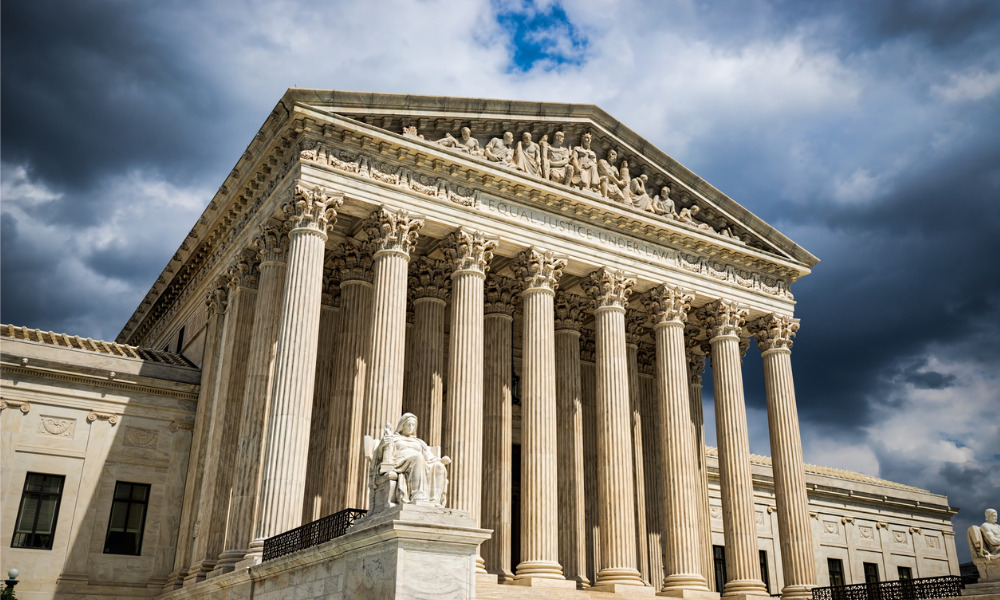
The upcoming case might 'nullify' California's Private Attorneys General Act (PAGA)

The U.S. Supreme Court will soon hear a case that could prevent employees in California from enforcing labor law violations against their employers as the state’s Private Attorneys General Act (PAGA) comes under scrutiny.
In Viking River Cruises, Inc. v. Moriana, the Supreme Court will decide the fate of PAGA, a California statute that was enacted in 2003. According to a report from the UCLA Labor Center (LC), the state established PAGA, an “innovative model for enforcing workplace rights,” to allow workers to bring a representative action in the name of the state and recover civil penalties for violations of the California Labor Code, even if they’ve signed “a forced arbitration agreement.”
PAGA cases are reportedly “effective” since it has allowed the state to collect millions of dollars in penalties from “lawbreaking employers” who would otherwise profit from exploiting workers, UCLA LC reported. In 2019, the state collected over $88 million in penalties.
“The reason PAGA is such a critical enforcement tool is because of the rise of mandatory arbitration, where employees are forced to give up their right to go to court to enforce wage or discrimination disputes as a condition of employment,” The American Prospect commented.
As explained by UCLA LC, before workers can initiate a civil action through PAGA, they must file their claim with the Labor and Workforce Development Agency (LWDA) and pay a filing fee. Within 65 days, the LWDA may agree to investigate and prosecute the alleged violation or give notice of their intent not to investigate or cite the employer, which authorizes the worker to begin a civil action. For certain violations, the employer has a 33-day window to cure the violation and avoid an enforcement action.
Read more: What HR leaders need to know about #MeToo bill
“PAGA is primarily used to fight wage theft and has had a considerable and positive impact for workers by deterring violations through a relatively small number of high-impact suits. The legislature has modified the law in response to employer concerns by focusing its attention on bad actors,” UCLA LC said.
But the issue in the upcoming Supreme Court case questions PAGA’s operation under the Federal Arbitration Act (FAA), as it seeks to resolve whether the latter requires enforcement of a bilateral arbitration agreement, providing that an employee cannot raise representative claims, even under PAGA.
Meanwhile, the Chamber of Commerce and other business organizations submitted a brief to the court in support of nullifying the said statute. “[PAGA effectively invalidates] millions of workplace arbitration agreements that should have been protected by the FAA and severe adverse consequences for businesses with workers in California,” the group said.
Mandatory arbitration has been a hot topic in California over the past few years. In 2019, Gov. Gavin Newsom signed Assembly Bill 51 (AB51) into law, prohibiting forced arbitration as a condition of employment in cases under the Fair Employment and Housing Act (FEHA) and California Labor Code. Additionally, the law prevents employers from retaliating against individuals who don’t sign arbitration agreements.
Historically, businesses have favored the arbitration process, arguing that it’s less expensive and much faster for resolving disputes rather than going through courtroom proceedings. That’s why business associations, such as the U.S. Chamber of Commerce, the California Chamber of Commerce and the National Retail Federation, filed a lawsuit before AB51 was to go into effect, seeking a preliminary injunction due to the legislation conflicting with the Federal Arbitration Act (FAA). The U.S. District Court for the Eastern District of California granted the injunction, but California appealed, and in September, the Ninth Circuit Court of Appeals overturned the decision.
In the case of Chamber of Commerce v. Bonta, the Ninth Circuit concluded that while AB51 focuses on banning mandatory arbitration, it still allows arbitration agreements that are voluntary and consensual. “The state of California has chosen to assure that entry into an arbitration agreement by an employer and employee is mutually consensual and to declare that compelling an unwilling party to arbitrate is an unfair labor practice. We are asked by plaintiffs to hold that the FAA requires parties to arbitrate when but one party desires to do so. Our research leads to nothing in the statutory text of the FAA or Supreme Court precedent that authorizes or justifies such a departure from established jurisprudence, and we decline to so rule,” wrote Judge Carlos Lucero.